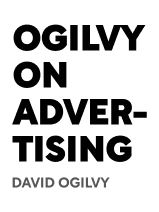

This article is an excerpt from the Shortform book guide to "Ogilvy On Advertising" by David Ogilvy. Shortform has the world's best summaries and analyses of books you should be reading.
Like this article? Sign up for a free trial here .
Do you want to know how to start an advertising agency? What do you need to effectively start and create an ad agency?
Learning how to start an advertising agency takes business experience and research. First, you need a strong business model. Then you need a plan for managing and setting up the agency, including hiring people.
Read more about how to start an advertising agency.
How to Start an Advertising Agency
In the previous chapter, we looked at how to get a job with an advertising agency. Now, we’ll look at how to run one.
To successfully start or manage an agency, you need to develop CEO skills, consider human resources, and manage your money.
CEO Skills
Agencies are run by the CEO, which is the most difficult and stressful position in an agency (one study found that senior advertising executives are more likely to die from stress-related causes than executives in other fields). This is one of the most important things to do when learning how to start an advertising agency. To be a successful CEO, you need:
- Leadership skills, especially when it comes to stressed, anxious people
- Oration skills. If you struggle to write good speeches, hire speechwriters and take public speaking lessons.
- Business acumen
- Ability to delegate (the more leaders your agency has, the more powerful it will be)
- Ability to attract new clients (if you don’t do this well, your staff will lose faith in you)
- Ability to work long hours
- Ability to retain morale
- Ability to make the workplace fun and safe (people do their best work when they’re comfortable)
- Ability to listen
- Ability to learn (most agencies represent clients in different fields, and you have to be knowledgeable about all of them)
- Ability to take ownership of and recover from mistakes
- Availability to travel and entertain
- Resilience (popular belief suggests that advertising attracts neurotics—Ogilvy thinks it produces them)
- Courage to fire people and make hard decisions
- Commitment to the work
- Enthusiasm and optimism
- Honesty
- Charm
- Momentum
- Self-confidence (you shouldn’t need to feel liked)
Additionally, CEOs should visit people in their offices (if you never leave your office and summon people there instead, you’ll turn into a hermit) and meet the needs of their followers.
Human Resources
An important part of running an agency is managing the people who work for it. You’ll need HR if you want to learn how to start an advertising agency.
Hiring
To run a successful agency, you need talented, trained staff. Try to recruit people who are:
- More skilled than you. Ogilvy had good luck with graduates of Harvard and St. Paul’s.
- Smart. Understand that being smart means more than IQ—it includes common sense and curiosity.
- Literate. Make sure everyone can communicate in writing—most communication in advertising is on the page.
- Good at leadership. Look for people whom you could see running your agency. Look at what they did in college—if they held leadership positions, they’ll probably hold them again.
Be cautious of or don’t hire any of the following:
- Your friends. If they don’t do their job well, you’ll have to fire them, and your friendship is unlikely to survive.
- Your clients. Your clients might be good at their business, but their skills are unlikely to transfer to the advertising business.
- Your clients’ children. If there’s conflict, you might lose the client.
- Your children or your partners’ children. Your most ambitious staff will be turned off by the nepotism and leave.
- People from other fields. Even if their skills are transferable, they may not have enough of an interest in advertising.
How to start an advertising agency can mean considering your team as a whole:
- Make sure you hire at least one person who will stir things up and challenge those who are more conventional.
- Don’t use more people power than necessary. If a job can be done by one person, only assign one person to do it.
- Hire people with a variety of talents so that your agency can produce different types of advertising. For example, a corporate account can’t be advertised the same way as a power tool company.
Or how to start an advertising agency when hiring partners, executives, or leadership:
- Don’t be concerned with formal education—academic achievement and leadership require different motivations.
- Consider unorthodox leaders or leaders who don’t fit your culture. The best leaders are unconventional because leadership requires innovation.
- Don’t always promote from within. Ogilvy had success hiring from outside because when he first started his company, he couldn’t pay well, so he couldn’t attract top talent, and the people he already had wouldn’t have done well in senior positions. Even if you do have strong internal talent, it can be useful to get fresh ideas and an outside perspective in the form of a partner from outside.
- Look for the same qualities required in a CEO.
Agency Size
There are advantages and disadvantages to both big and small companies. Small companies have trouble attracting big accounts because they don’t have the same resources a big company could offer. If small companies do manage to secure a big account, they might become so scared of losing it that they pander instead of offering the impartial judgment clients need.
Big companies, on the other hand, tend to be more bureaucratic and hierarchical. The staff don’t all know each other, and the company is harder to control.
Office Politics
Politics are common in advertising agencies because the atmosphere is so high-pressure. People compete for offices, lunch dates, and promotions, and if the politics get out of hand, they can severely damage the business. For example, the culture at Milton Biow’s agency became so cutthroat he had to shut the agency down. You’ll need to think about this when learning how to start an ad agency.
To manage this:
- Fire the worst offenders. You probably already know who they are—the people who BCC you on their passive-aggressive emails to their enemies.
- Force people to talk to each other face-to-face. If someone comes to you to criticize her rival, invite the rival into the conversation, and ask the criticizer to repeat their criticism in front of her. If people try to fight in writing, force them to talk to each other in person instead.
- Organize lunch activities. This will encourage everyone to get to know each other and become friends.
- Don’t let people take credit for others’ ideas.
- Be fair. Don’t have favorites.
- Stay out of politics yourself.
Maintain Standards of Conduct
As you understand how to start an ad agency, demand that everyone:
- Be punctual.
- Give top performance.
- Answer the phone promptly.
- Maintain client confidentiality by never speaking about clients in public, never leaking unreleased ads, and being careful with untested freelancers.
- Meet deadlines by working overtime if necessary. All-nighters improve morale as long as the leader also participates in the all-nighter.
- Meet goals. Set goals at the beginning of the year and then see how many have been completed by the end. Otherwise, you and your people might waste time on ideas or projects that don’t produce results.
- For example, the McKinsey agency links salary to accomplishments.
- Only buy clients’ products. It looks bad to use competitors’.
- For example, Ogilvy managed the American Express account, so he only used American Express travelers’ checks.
- Never complain about companies. They might remember your or your staff’s names and avoid your agency.
- For example, Ogilvy complained about a Cunard ship he traveled on. Three months later, Cunard was looking for an agency and chose a competitor instead.
When you need people to do something, attend meetings and communicate verbally.
Now that you know how to start an ad agency, you can start setting up your business.

———End of Preview———
Like what you just read? Read the rest of the world's best book summary and analysis of David Ogilvy's "Ogilvy On Advertising" at Shortform .
Here's what you'll find in our full Ogilvy On Advertising summary :
- What the "father of advertising" has learned from his decades' of experience
- How to craft easy-to-understand ads that work
- The 6 pioneers of the advertising industry







This article is a goldmine of insights for anyone aspiring to enter the dynamic world of advertising. The step-by-step guide provided here is not just informative but incredibly practical.
I found the emphasis on “Defining Your Niche” to be particularly valuable. In today’s competitive landscape, having a specialized focus can set your agency apart and attract the right clients who are seeking expertise in a specific area.
Additionally, “Building a Strong Team” is vital for success in advertising. The creative and strategic minds you bring together can make or break your agency’s reputation.
The advice on “Marketing Your Agency” is spot-on. After all, if you can’t market your own agency effectively, it’s hard to convince clients you can do it for them.
Lastly, the discussion on “Client Relationships” underlines the importance of trust and clear communication in this industry. Happy clients are more likely to stay with you and refer others.
Thank you for sharing this comprehensive guide. It’s a must-read for anyone with ambitions of starting their own advertising agency. I’ll be referring to it often as I embark on this exciting journey!